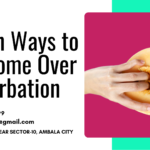Sex is a natural and enjoyable part of life, but sometimes, it can lead to unexpected physical reactions. One common concern is experiencing cramps after sex. Understanding why this happens can help alleviate worries and ensure a healthy, enjoyable sex life.
Table of Contents
What Causes Cramps After Sex?
1. Muscle Contractions
During orgasm, your pelvic muscles contract. These contractions can sometimes cause cramping, especially if the muscles are already tense or tired.
2. Dehydration
Dehydration can make muscles more prone to cramping. Ensure you're well-hydrated to help prevent cramps.
3. Position and Intensity
Certain sexual positions or vigorous activity can strain muscles, leading to cramps.
4. Underlying Health Conditions
Conditions like endometriosis, fibroids, or pelvic inflammatory disease (PID) can make you more prone to cramps after sex. If cramps are severe or persistent, it's essential to consult a healthcare provider.
How to Prevent Cramps After Sex
1. Stay Hydrated
Drinking plenty of water before and after sex can help keep muscles relaxed and reduce the risk of cramping.
2. Stretch and Relax
Gentle stretching and relaxation exercises can help keep muscles flexible and reduce the likelihood of cramps.
3. Choose Comfortable Positions
Experiment with different sexual positions to find those that are less likely to cause strain and cramping.
4. Consult a Doctor
If you frequently experience cramps after sex, speak to a healthcare provider to rule out any underlying conditions.
When to See a Doctor
While occasional cramps after sex can be normal, persistent or severe cramps may indicate a health issue. Consult a healthcare provider if:
- Cramps are severe and don't go away
- You experience other symptoms like heavy bleeding, fever, or unusual discharge
- You have a known health condition like endometriosis or fibroids
Conclusion
Experiencing cramps after sex can be uncomfortable, but it's usually not a cause for concern. By staying hydrated, stretching, and finding comfortable positions, you can reduce the likelihood of cramping. If you have any concerns or persistent symptoms, consulting a healthcare provider is always a good idea.







